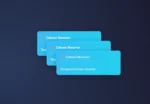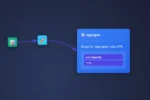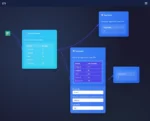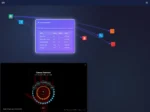When it comes to the global food supply chain, ensuring the safety, quality, and traceability of what we consume has never been more critical. With food-related recalls costing millions and negatively impacting brand reputation, businesses cannot afford complacency. The good news is that advanced food safety analytics, powered by next-generation data strategies and intelligent software solutions, are revolutionizing contamination tracking efforts across complex supply chains. Through real-time tracking and predictive analytics, companies can proactively identify, respond to, and mitigate contamination risks, turning potential vulnerabilities into competitive advantages. In this article, we’ll break down how innovative analytics approaches transform food safety management, highlight measurable business benefits, and provide decision-makers with key insights that enable smarter, safer, and more transparent food supply chains. Whether your company is building a strategic single source of truth or enhancing consumer trust, effectively deploying data-driven insights makes all the difference.
The Importance of Real-Time Contamination Tracking in Supply Chains
Effective contamination tracking is not only crucial to minimizing public health risks, but also has major implications for brand trust, regulatory compliance, and operational efficiency. Picture a contamination incident escalating rapidly—without real-time analytics and dynamic visibility into the supply chain, businesses face enormous challenges identifying the source and containing the damage promptly. Food safety analytics bridges this gap by utilizing automated data pipelines, sophisticated IoT integrations, and advanced spatio-temporal indexing capabilities that pinpoint contamination sources swiftly and precisely.
These advanced techniques offer significant economic advantages, too; according to recent industry reports, timely identification of contamination sources can reduce recall-related costs by over 50%. Companies adopting robust analytics platforms, such as cloud-based solutions enabled through experienced partners well-versed in GCP consulting services, can quickly understand logistical data, batch records, and trace products back to their origins. This empowers stakeholders to proactively mitigate risks before disruptions reach customers and regulators, thus protecting brand reputation, maintaining compliance, avoiding costly recalls, and most importantly, safeguarding consumers’ health. In today’s dynamic and complex food ecosystem, a company’s ability to rapidly detect and respond to contamination issues is paramount for long-term business resilience.
Leveraging Advanced Data Pipelines for Enhanced Traceability
At its core, effective food safety analytics relies heavily upon dynamic data pipelines that seamlessly ingest, process, and analyze data collected throughout the entire supply chain. As food moves through different stages—from farms and warehouses, to distribution centers and retail points—intelligent software solutions engineered to handle data branching patterns ensure greater transparency, accountability, and risk mitigation.
The innovative approach of employing automated testing methods within pipelines, such as canary deployments, assures high-quality data accuracy and enables seamless detection of quality standards or contamination red flags early in the process. Establishing advanced frameworks and integrating sophisticated analytics facilitates not only the quick identification of problems but also offers deep insights that previously might have gone unnoticed. Utilizing analytics systems built for comparative analysis—such as small multiple design patterns—business stakeholders can rapidly compare contamination incidents across various locations, facilities, or product lines to pinpoint systemic vulnerabilities and improve future handling protocols.
Businesses embracing these state-of-the-art analytics and data pipeline methodologies hold a substantial competitive advantage in the industry. With enhanced traceability, they provide clear proof-of-provenance, elevate consumer trust, and enable measurable operational improvements. Ultimately, companies making these investments in food safety analytics substantially reduce supply chain risks while simultaneously strengthening their market positioning.
Predictive Analytics for Proactive Risk Management and Prevention
Reacting swiftly in times of contamination is critical; however, remaining proactive and predictive is where businesses gain a powerful competitive edge. Predictive analytics technologies leverage machine learning algorithms, historical contaminant data, and real-time sensor inputs to forecast when, where, and under what conditions contamination might likely occur. This predictive capability empowers organizations to mitigate potential quality or health hazards proactively, rather than waiting until an adverse event occurs.
Forward-thinking companies are increasingly working with expert software consultancies to develop customized predictive models tailored specifically for their operational context. Making the decision between adopting custom vs off-the-shelf software is pivotal, and leveraging a technical strategy partner experienced in advanced analytics can unlock competitive advantages. These predictive capabilities enable better decision-making, ensuring contamination risks are minimized by anticipating events rather than simply responding after the fact.
Analytics programs implemented with proactive detection algorithms provide increasingly accurate, actionable insights over time. They establish baselines, detect anomalies more effectively, and predict contamination events with higher confidence. Furthermore, comprehensive safety analytics become invaluable assets when navigating regulatory environments, insurance negotiations, or consumer transparency campaigns. With predictive analytics at the forefront of corporate practices, companies demonstrate leadership, strengthen brand reputation through reliability, and reinforce safety as a core strategic value.
Ensuring Data Quality and Accessibility as Cornerstones of Success
No matter how powerful your analytics capabilities are, the value derived from analytics ultimately depends on the quality and integrity of the data itself. Businesses need robust data quality testing frameworks to monitor, validate, and remediate incoming data continuously. Reliable data provides the crucial foundation required for meaningful analytics insights, real-time contamination tracking, and predictive risk modeling. Neglecting data quality can severely compromise analytics results, eroding trust both internally and externally.
Moreover, presenting those insights effectively and clearly to all stakeholders is crucial. Deploying inclusive analytics solutions and visualizations—including best practices for creating accessible data visualizations—helps everyone within the organization, regardless of previous technical proficiency, understand analytics insights and translate them into practical, timely decisions. Investment in analytics education and training, leveraging reputable institutions such as state-of-the-art programs seen at The University of Texas at Austin, further enables data-driven culture growth across the organization.
By focusing on both data integrity and insightful presentation, companies build a resilient analytics infrastructure. They reassure stakeholders, optimize decision-making effectiveness at all levels, and enhance operational transparency. Strengthening these analytics capabilities significantly improves food supply chains—driving higher performance, customer satisfaction, and public safety standards across the entire industry.
The Path Forward: Embracing Innovation in Food Safety Analytics
As supply chain complexities increase and safety standards become more stringent, innovation in food safety analytics will continue to offer substantial competitive advantages to forward-thinking companies. Successfully navigating issues like data management complexities, robust prediction models, or resolving technological roadblocks encountered—such as the often cited error message “error 1084 this service cannot be started in safe mode”—will further empower organizations to fully capitalize on industry-leading insights.
Ultimately, leveraging strategic analytics technologies paired with industry expertise creates nimble, proactive organizations. Such businesses can withstand contamination events, regulatory shifts, and consumer health concerns confidently. Proactive analytics-driven companies can rapidly adapt processes, optimize consumer safety measures, reduce compliance complexities, and maintain strong brand integrity. Important decisions today about adopting advanced analytics tools and techniques lay the foundation for sustainable innovation in tomorrow’s food safety landscape.
To seize the potential benefits and confidently accelerate your analytics strategy for impactful food safety compliance, it’s time to collaborate with expert analytics consulting partners who specialize in pioneering next-generation systems, dedicated insights, and strategic technology alignment.
Thank you for your support, follow DEV3LOPCOM, LLC on LinkedIn and YouTube.
























